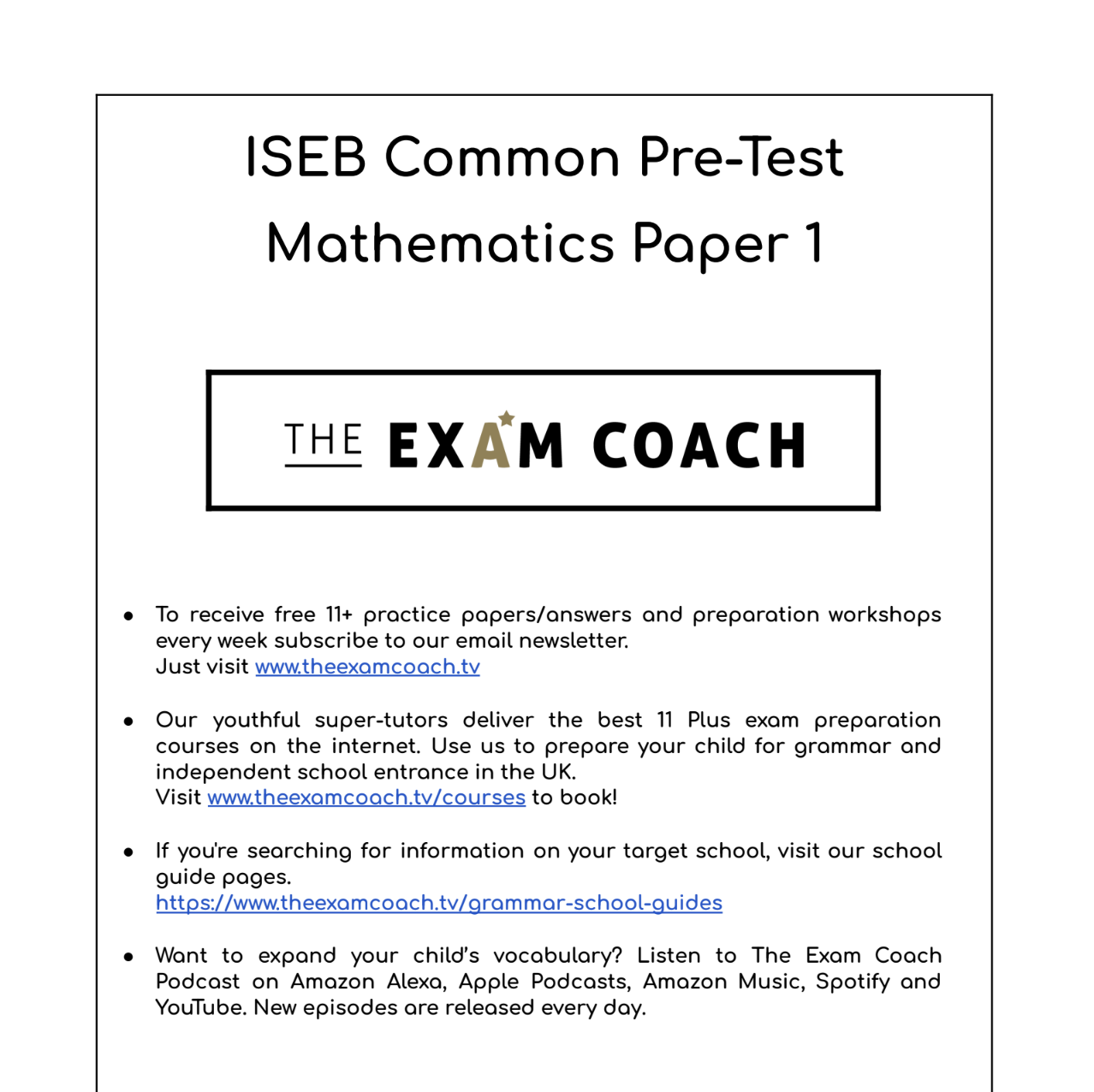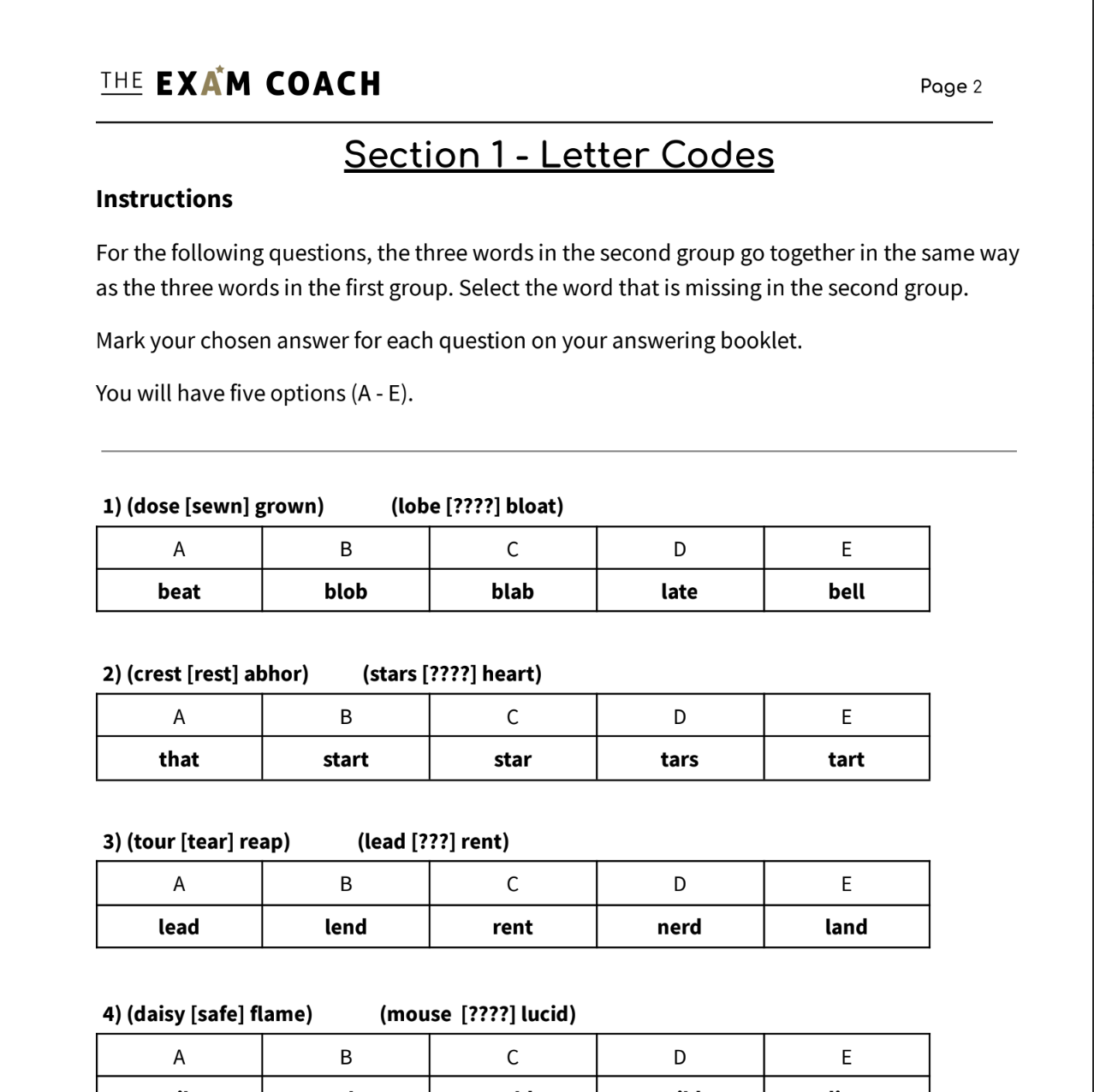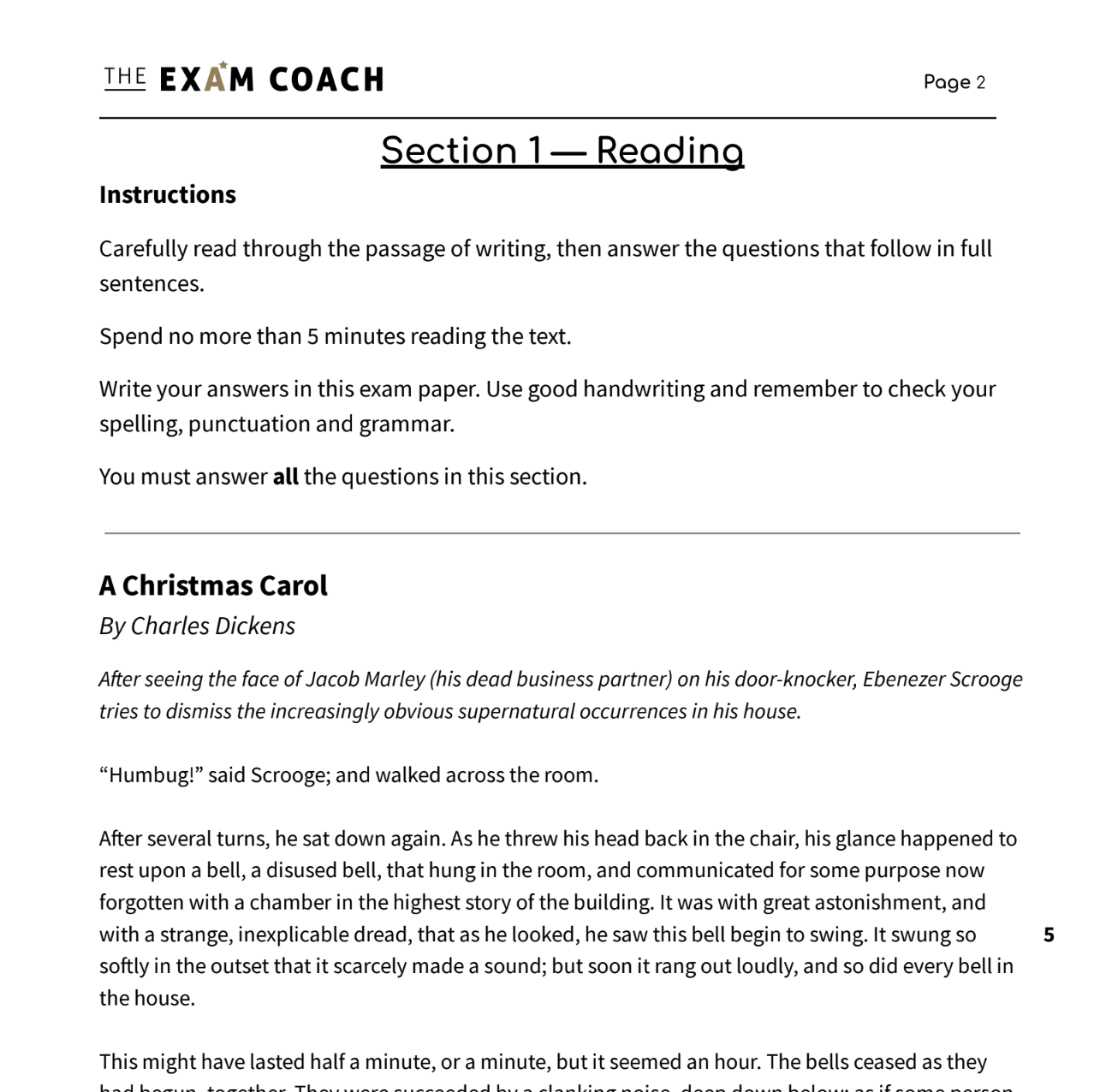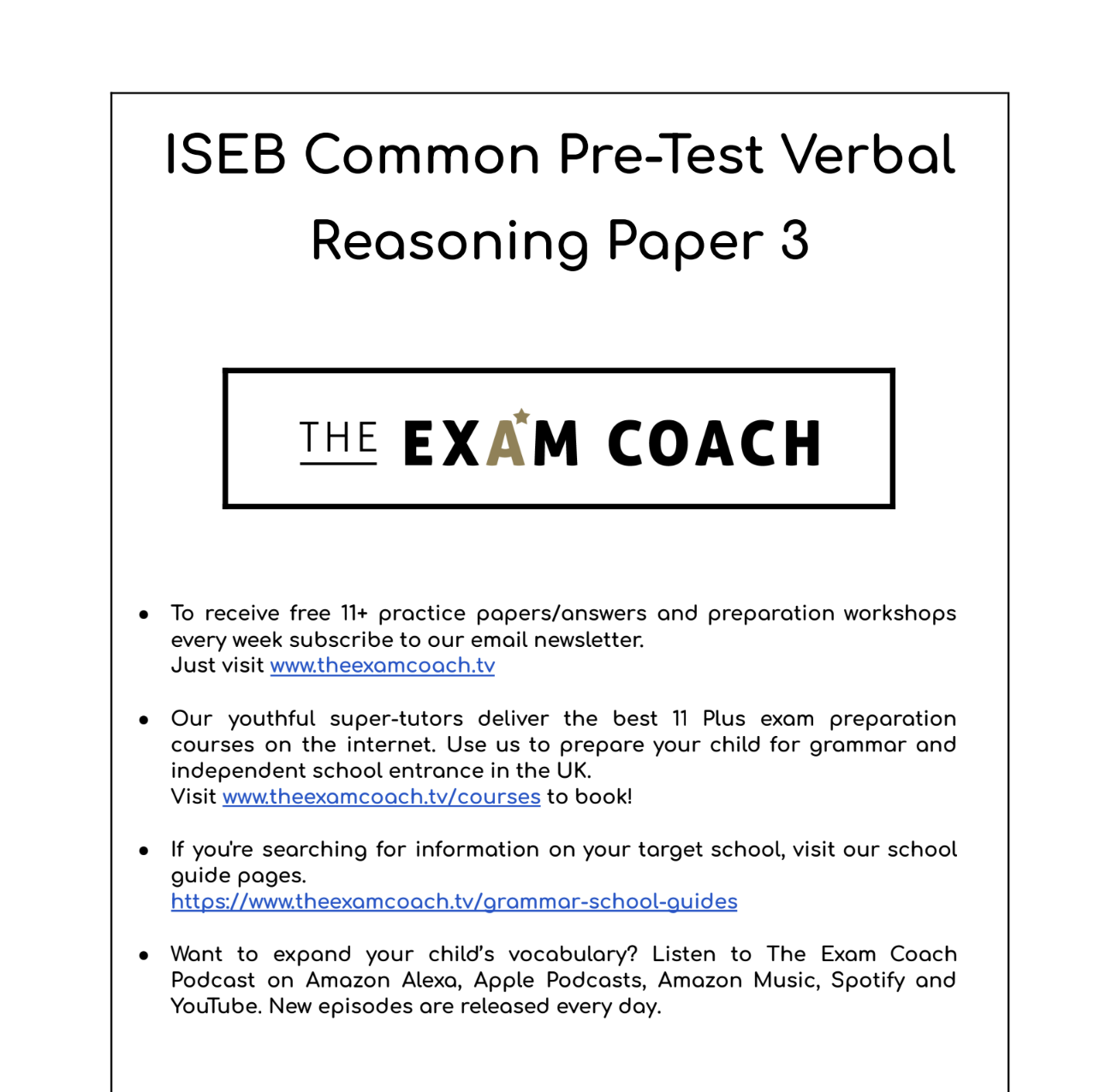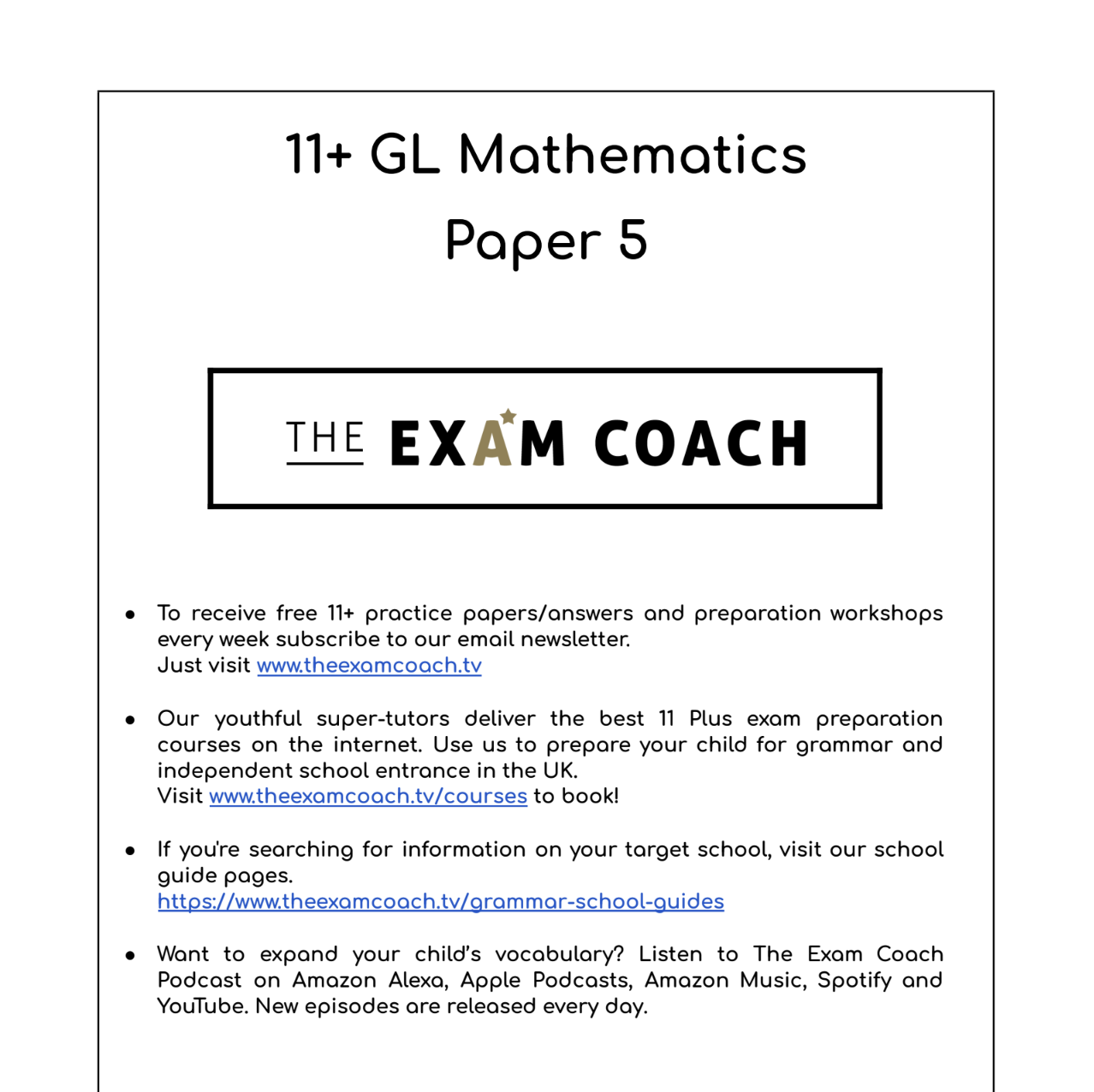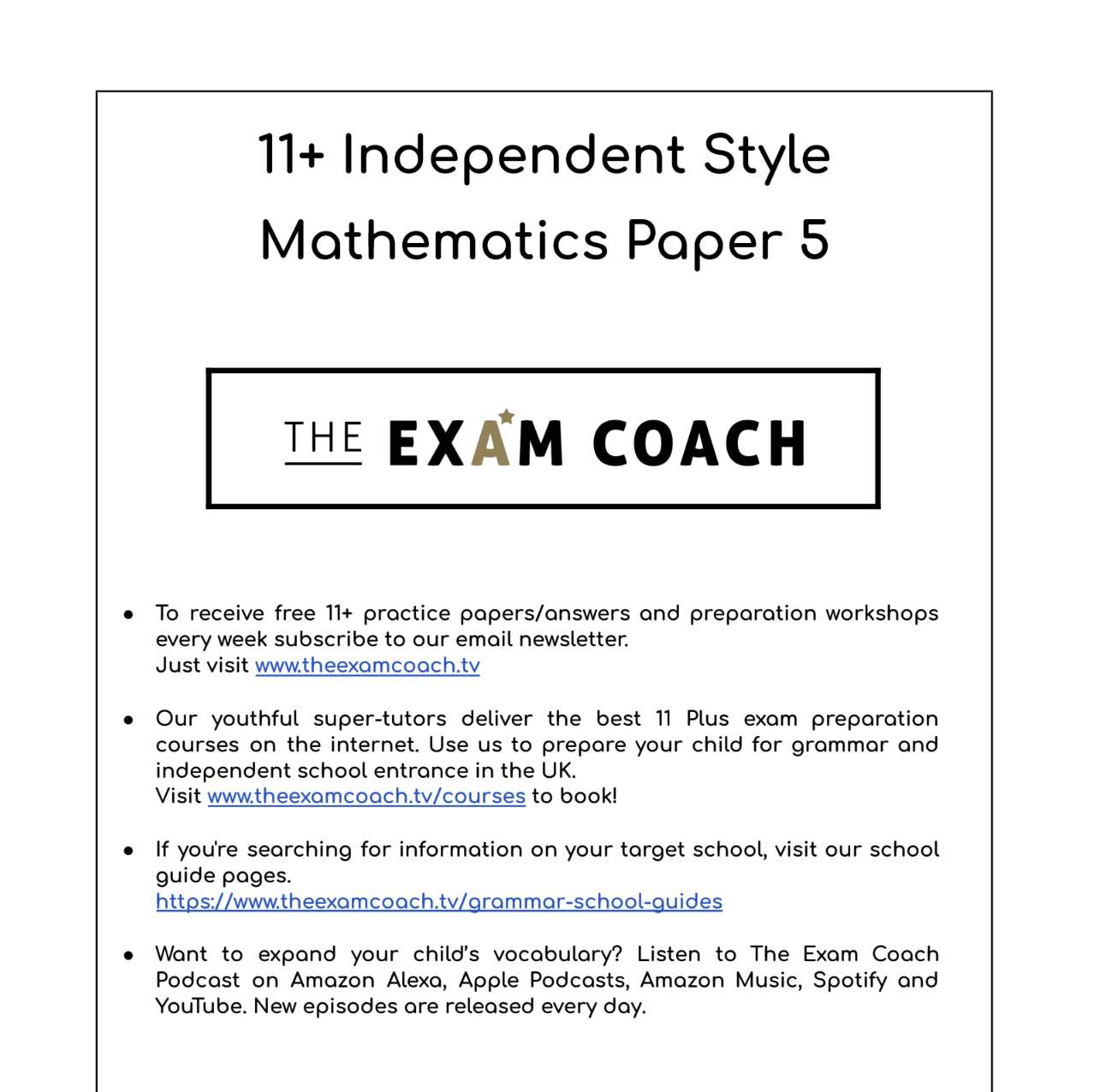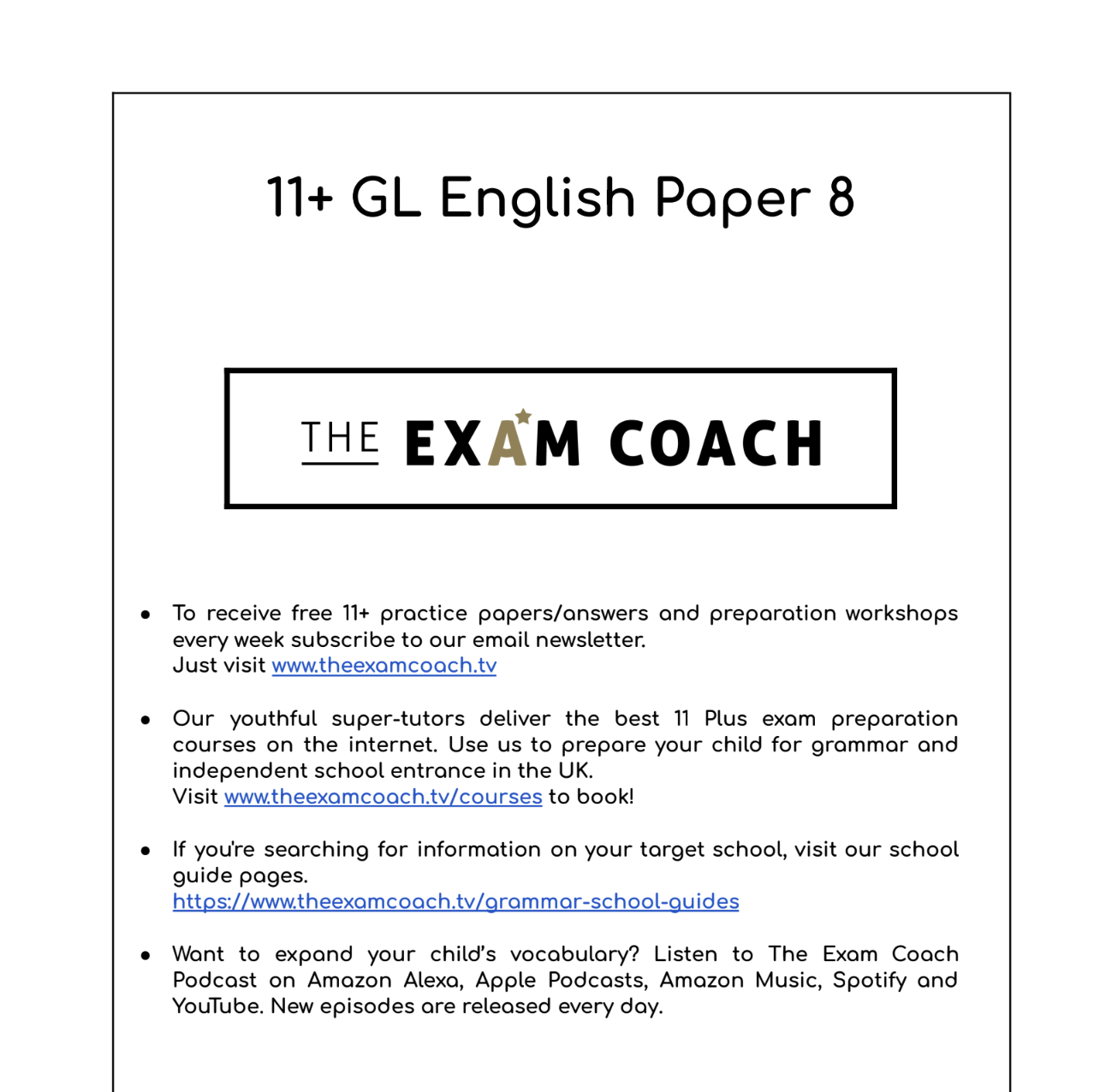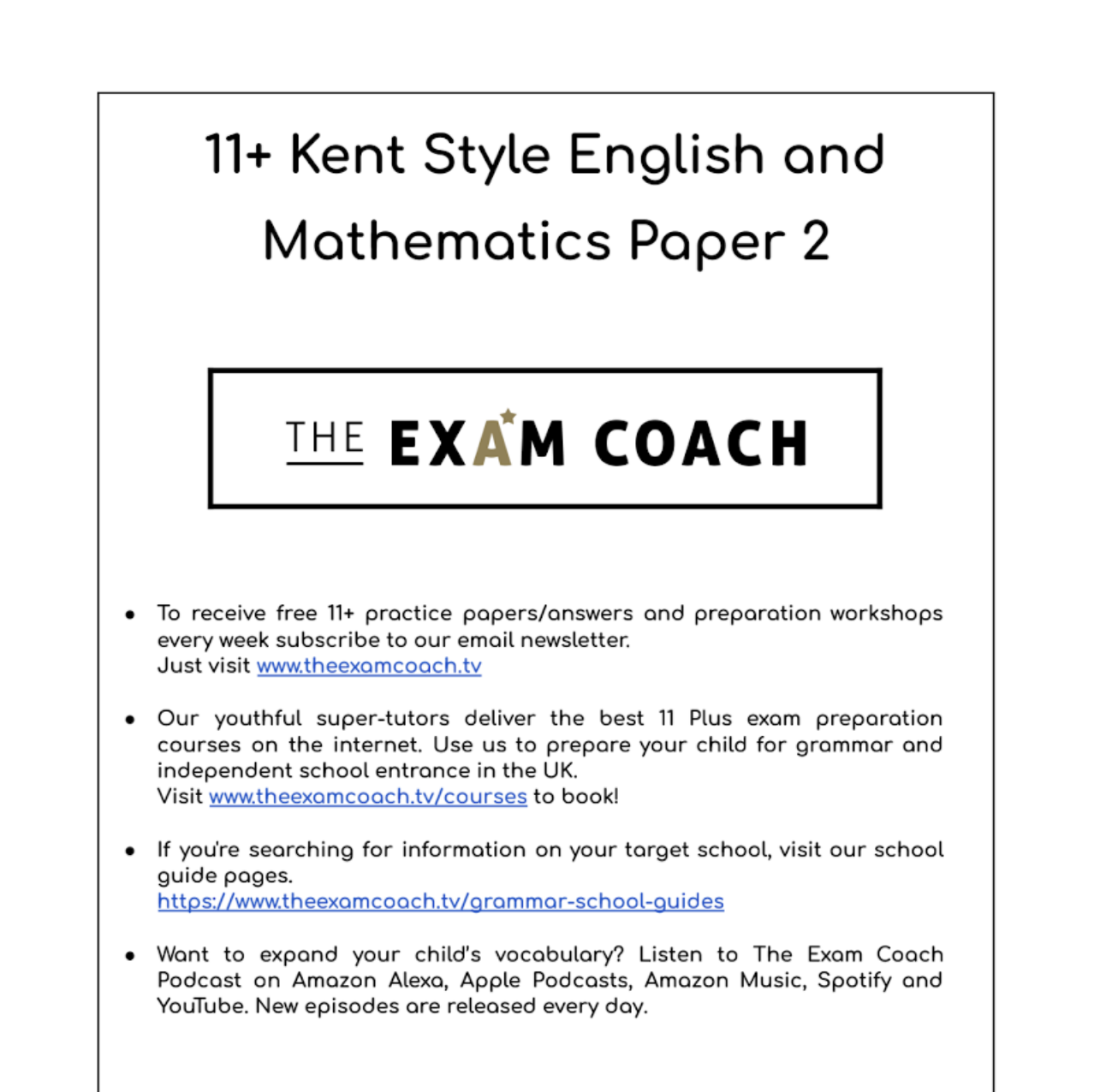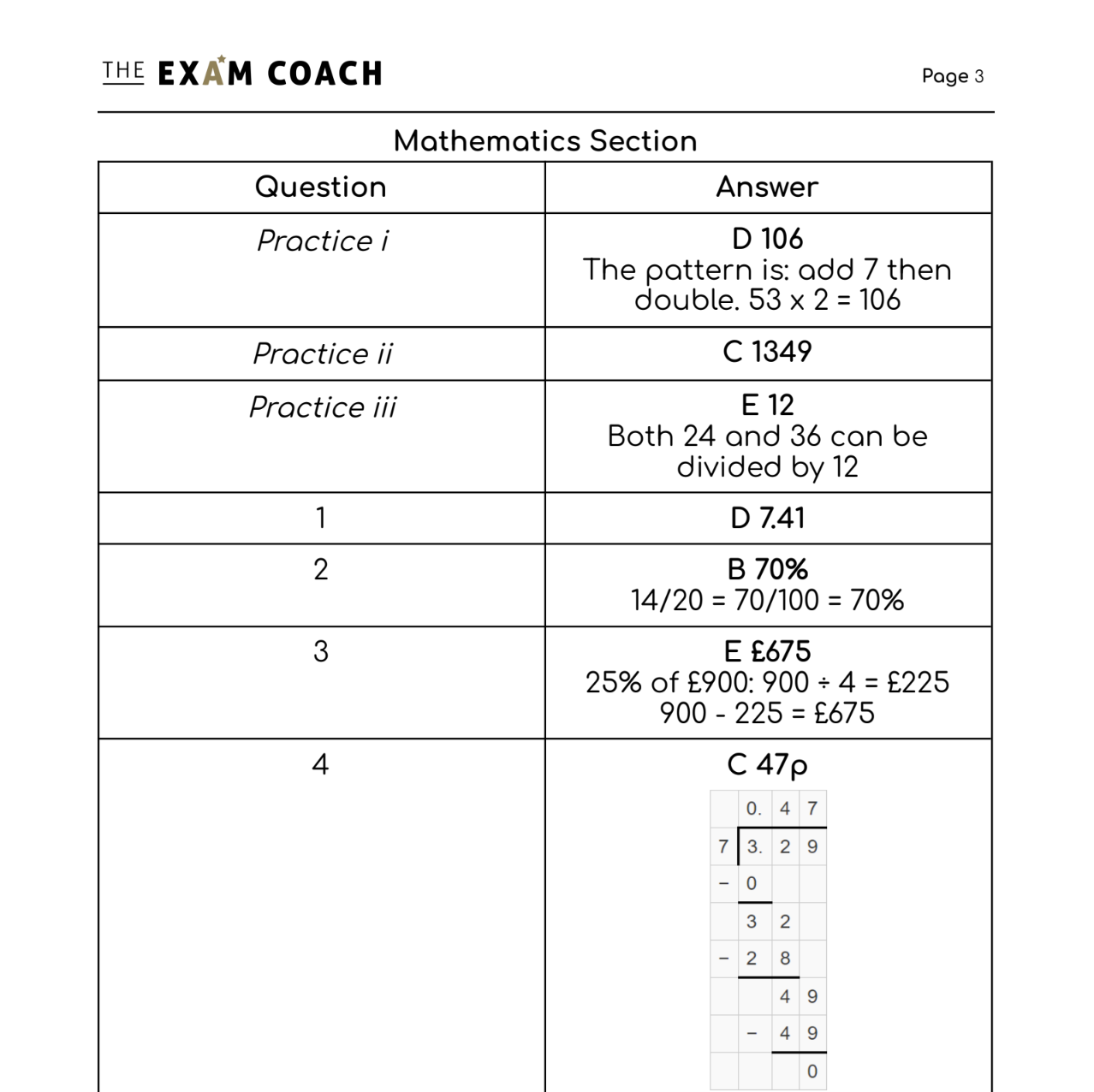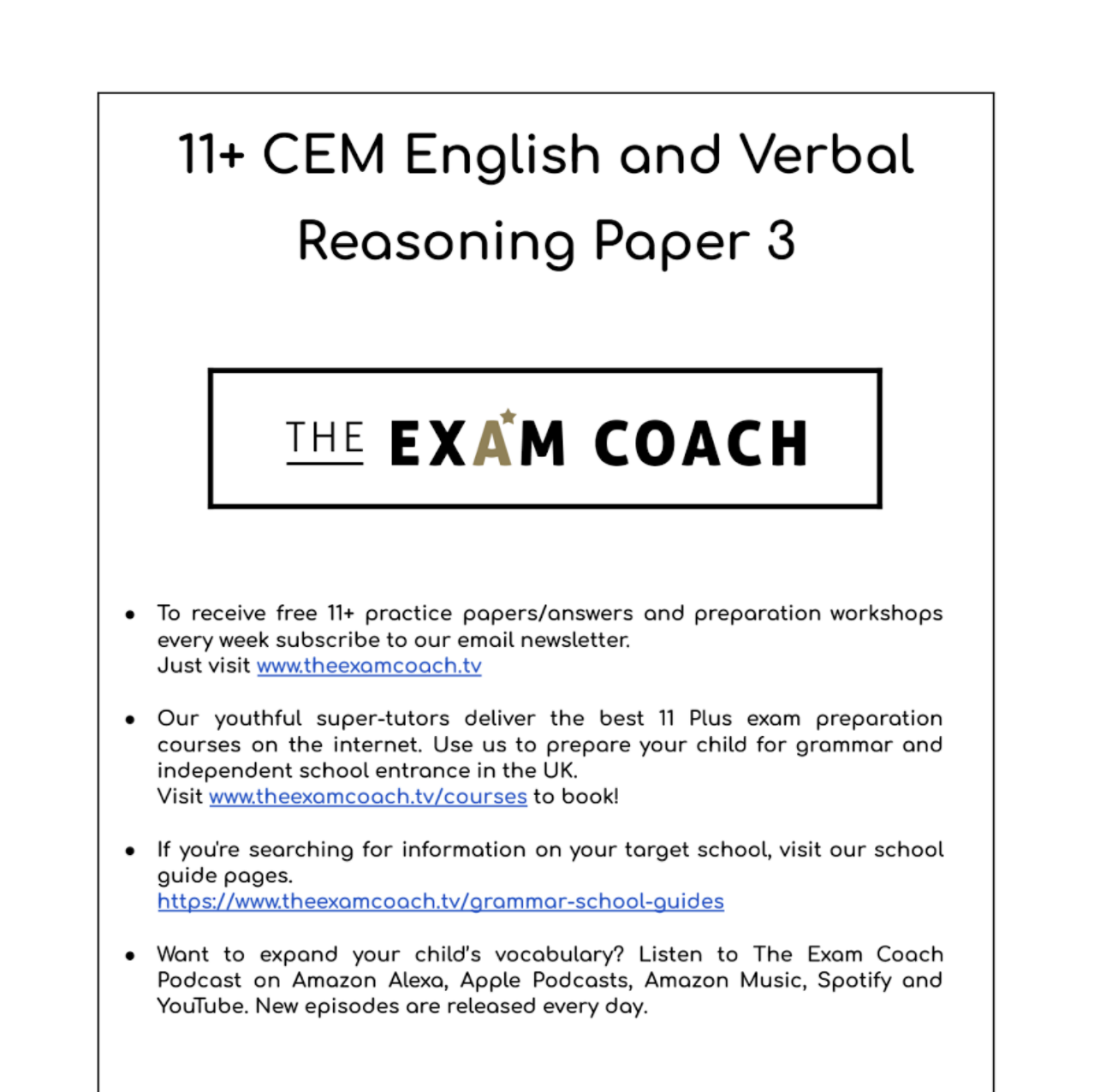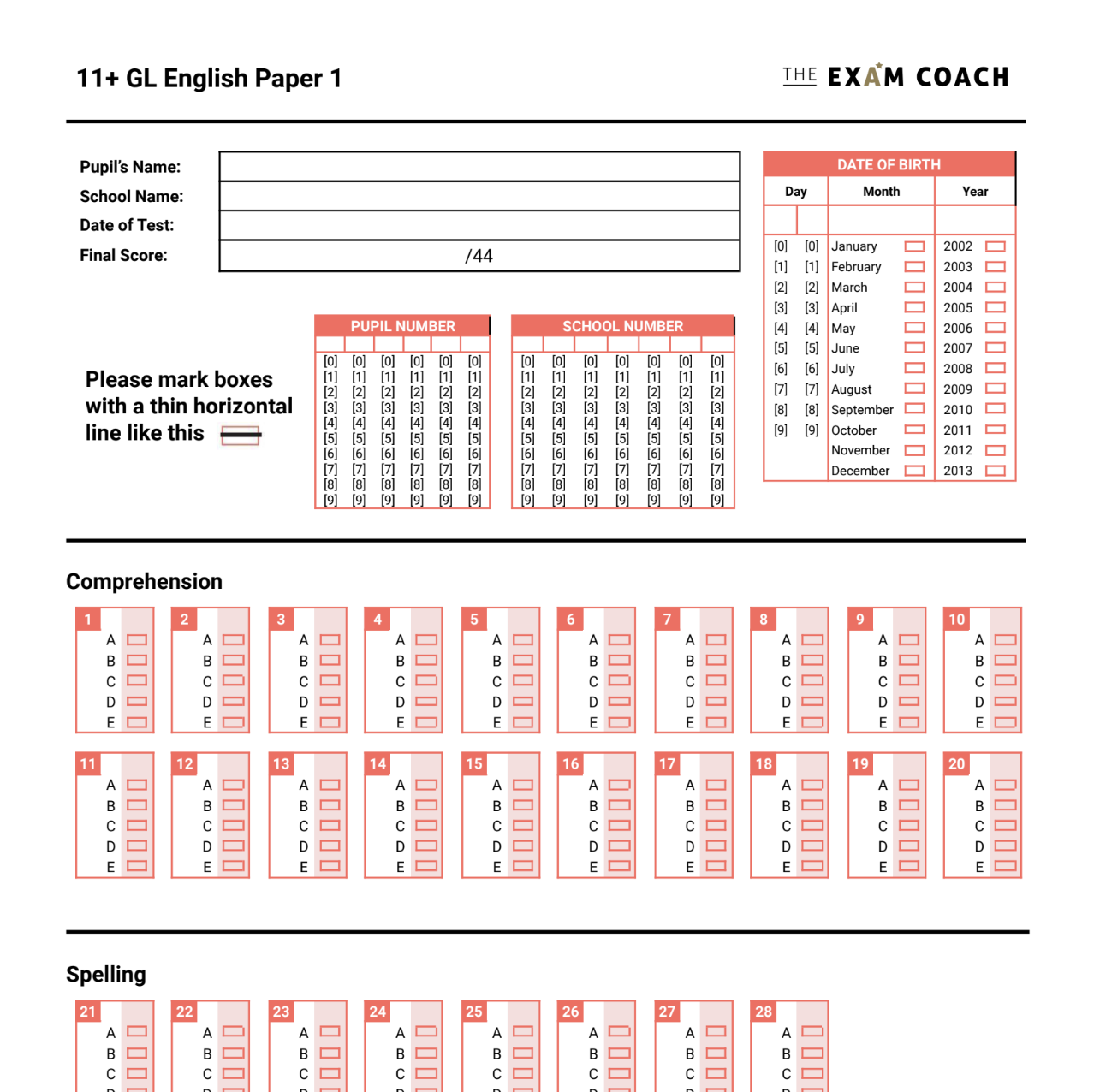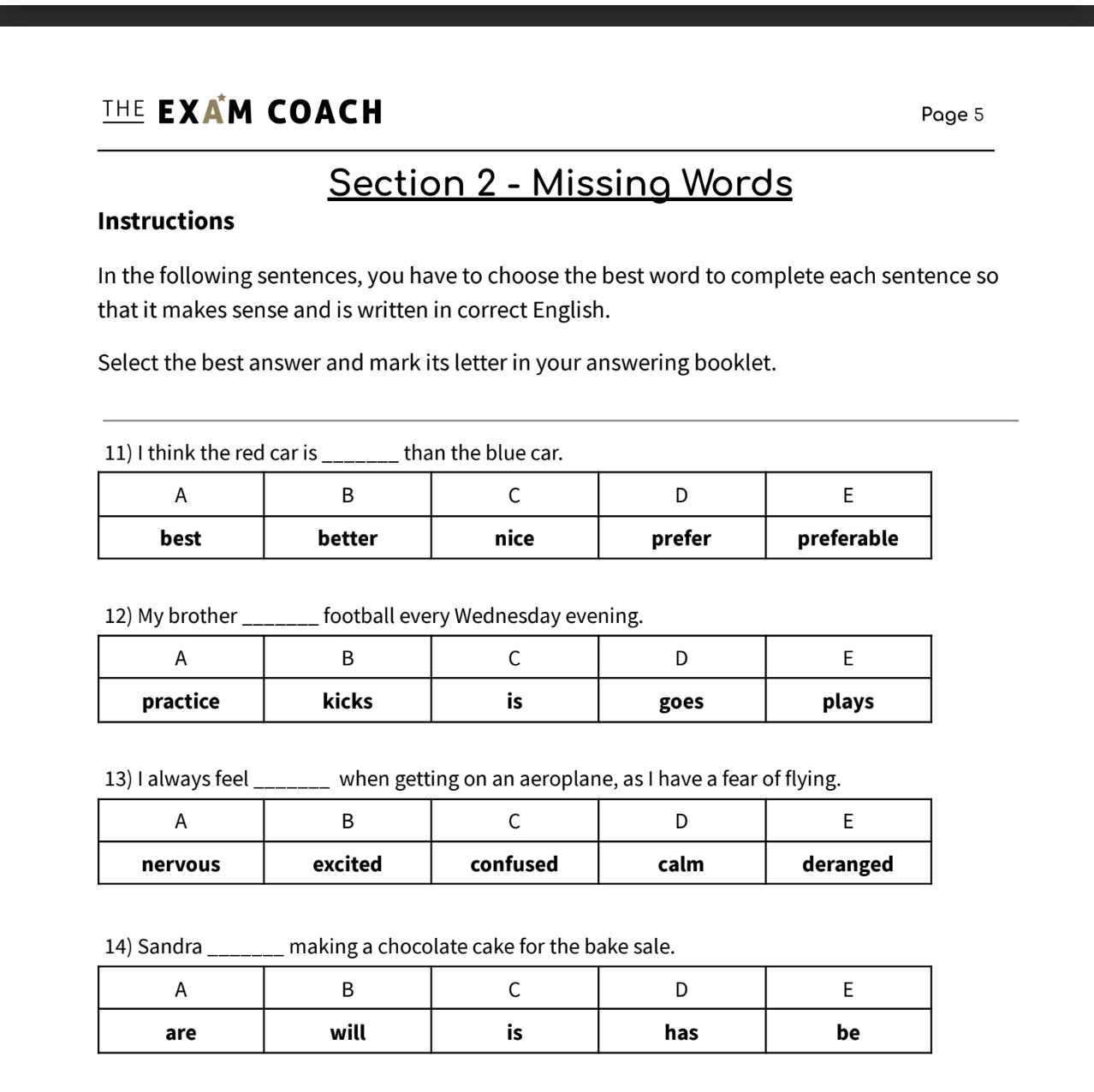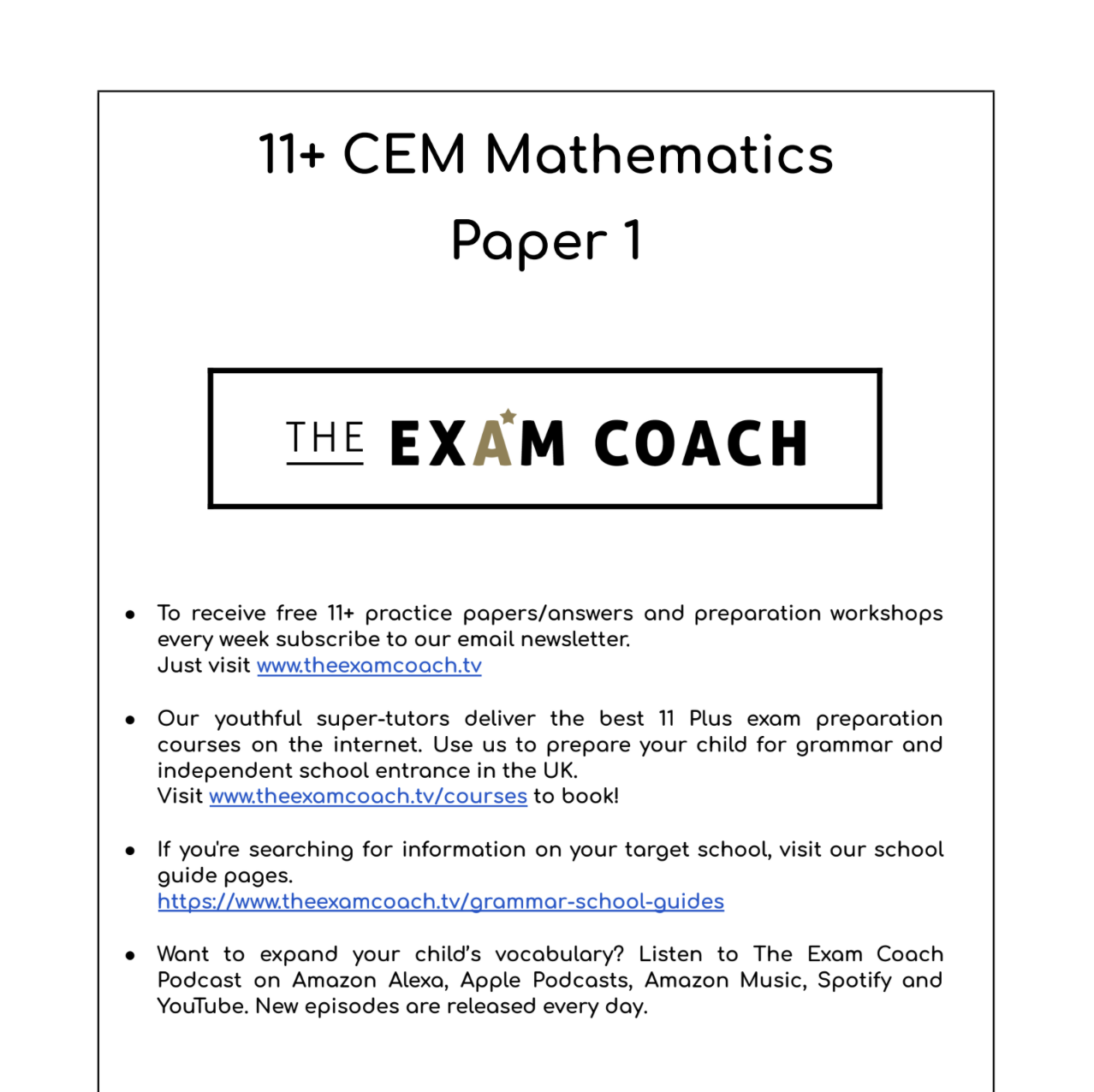Preparing for an 11 Plus exam can be a daunting task for both parents and students alike. This single key examination determines entry into selective secondary schools across the country, shaping the academic future of your child. When preparing for the 11 Plus, especially as exam day approaches, mock exams serve as indispensable tools, offering a glimpse into the format and procedure of the actual test.
But here's the twist: mock exams need not be confined to expensive test centres or costly tuition companies. With the right approach, you can seamlessly integrate mock testing into your child's 11+ preparation from the comfort of your home. By familiarizing your child with the examination format and providing a conducive environment for practice, you can instil confidence and exam familiarity at home. Conducting mock exams at home offers you the flexibility to tailor the experience to your child's specific needs and your schedule.
In this guide, we aim to take you through the process of conducting your very own 11 Plus mock exams at home, ensuring that your child is well-prepared to tackle the challenges that lie ahead, without the (often large) fees. Whether you need tips on setting up an exam-like environment, selecting the appropriate practice papers, or marking your child’s work, we've got you covered every step of the way.
Join us as we delve into the intricacies of home-based mock exams, empowering you to take charge of your child's preparation journey and pave the way for their success in the 11 Plus exam and beyond.
Contents
Benefits of Mock Exams
Mock exams offer plenty of benefits to both students and parents embarking on the journey towards 11 Plus examinations. Firstly, a mock test allows your child to become familiar with the exam, including the structure, timings, and types of questions featured in their actual 11 Plus exams. By simulating the exam environment at home, students can become accustomed to the pressure and time constraints they will encounter on exam day. This familiarity not only boosts confidence but also helps alleviate exam anxiety, ensuring that students can perform at their best when it matters most, without any surprises.
Conducting mock exams at home serves as an excellent stepping stone towards the actual exam day. It allows students to gradually acclimatise to exam conditions and refine their test-taking strategies in a familiar environment. This gradual progression helps build confidence and minimises the likelihood of being overwhelmed by the exam setting on the big day.
With careful planning and preparation, mock exams can be conducted in exam-like conditions right in the comfort of your own home. Ensuring a quiet, distraction-free environment and adhering to strict timing guidelines mirror the conditions students will face in the official exam hall. (We’ll look at this in more detail later on.) This enables students to practice under realistic circumstances and enhances their ability to perform under pressure.
Finally, a mock exam offers you a valuable insight into your child's performance and readiness for the 11 Plus exam. By reviewing their performance and answers, parents can gauge their child's strengths and weaknesses across different subjects and question types. Additionally, marking your child's work provides a deeper understanding of their progress over time, allowing for targeted interventions and focused revision efforts.
In essence, mock testing is an indispensable part of the 11 Plus preparation journey. So how do you do them at home?
Setting Up Your Mock Exam
Preparing for a mock exam at home is probably a lot easier to do than you realise. Testing at home offers a cost-effective and convenient alternative to formal test centres or tutoring services.
Conducting a mock exam at home doesn't require a lot of resources or specialized knowledge. With access to practice papers, a printer and a quiet space, you can recreate the exam experience. Here's how to create the ideal environment for your child's mock examinations.
To start off, select a suitable time and date for your child's mock exam. Ensure they can work throughout this time without interruption, allowing them to focus fully on the task at hand. Minimise distractions from siblings, household chores, screens or other commitments to create an optimal testing environment.
Choose a quiet and well-lit space for the mock exam. This could be a designated study area or any room free from distractions. The goal is to create a comfortable setting that promotes concentration and enables your child to immerse themselves fully in the exam experience.
Equip your child with the necessary materials for the mock exam, including the exam paper or/and answering booklet, pencils, erasers, and a clock/timer to track the time. To replicate exam conditions fully, put the clock or timer in their eye-line. When your child looks up from their paper, they should be able to see the clock. Limit access to just the essential materials to mimic the conditions of the actual exam and foster a focused mindset.
While you have the option to supervise your child during the mock exam, it's also acceptable to allow them to work independently. Regardless of your choice, enforce certain restrictions, such as prohibiting the use of mobile phones or computers, to maintain the integrity of the exam conditions. If in doubt, just remove anything distracting from the workspace. They must work in silence.
By following these straightforward steps, you can create a conducive and authentic testing environment for your child's mock exam at home. This approach not only saves time and money but also provides a setting for invaluable practice in a familiar and comfortable setting. This style of mock test can then be repeated as many times as you feel is needed for full familiarisation.
Selecting Exam Papers
Choosing the right practice papers for your child's mock exam is crucial for effective preparation. Using reputable 11 Plus style practice papers ensures your child is exposed to high-quality questions that closely resemble those found in their actual 11 Plus exam. These papers are carefully curated to cover the breadth and depth of topics tested, providing comprehensive preparation for all sections of the exam. These papers will also closely replicate the format and style of the actual examination paper, often providing an answering booklet as will occur in the exam.
For free and regular practice papers, we highly recommend using our own free weekly practice papers for English, maths, and verbal reasoning. These papers are designed by our experienced team of tutors and align closely with the format and content of the 11 Plus exam. They offer a valuable resource for students and parents for general preparation but they are also designed to be used as mock exams at home.
We send out one free English or mathematics practice paper, exam-style answering booklet and answers every single week! Sign up to our mailing list to receive your first paper today!
In addition to free resources, we also offer paid exam paper packs tailored to specific exam boards and formats. Whether your child is preparing for the GL, CEM, ISEB, Kent Test, or independent-style exam boards, our paper packs provide targeted practice materials to supplement their preparation efforts. These packs are designed to streamline the preparation process, particularly for families with limited time or specific exam requirements.
By selecting official or reputable practice papers, such as the Exam Coach's papers, you can ensure that your child receives the highest quality preparation for the 11 Plus exam. These resources not only enhance your child's understanding of exam content but also build their confidence and readiness to tackle the challenges of the actual exam.
Simulating Exam Conditions
Replicating real exam conditions during mock exams at home is essential for providing an authentic testing experience and preparing students for the real 11 Plus exam. Here's how to ensure your mock exams closely resemble the actual testing environment.
We provide exam answering booklets designed to mimic the format and layout of official exam papers. Encourage your child to use these booklets to familiarize themselves with the exam style and structure, including the arrangement of questions and answer spaces.
Before beginning the mock exam, take a moment to review the information page on the practice paper. This page typically includes important details, such as the time limit for each section and the allowed resources, such as pencils and paper. Familiarizing your child with this information helps them understand what to expect and how to manage their time effectively during the exam. Exam invigilators will often read out the instructions section to the entire group before the exam begins.
Make sure your child always has a clock within sight when completing a mock exam. And ensure they adhere to the time limit specified. This mirrors the timing constraints imposed during the actual 11 Plus exam and helps your child practice pacing themselves appropriately to complete all questions within the allotted time. When time is up, they must stop working immediately, even if they are halfway through an answer.
For parents, setting a timer can be a useful tool to track your child's progress and provide timely updates on remaining time. By checking in with your child formally at intervals, you can ensure that your child stays on track and manages their time effectively. Some exam boards may also specify timed sections during the exam, making it beneficial for children to practice working within specified timeframes. Always read through the instructions on the first or second page of the exam paper before giving it to your child. It will make any timings and reminders needed clear, so you can ensure they are adhered to during your mock exam.
Encourage your child to work independently during the mock exam, without seeking support or assistance from others. This mirrors the conditions of the actual 11 Plus exam, where students are expected to rely solely on their own knowledge and skills to answer questions. No notes or other materials should be in front of them except the exam paper.
Marking and reviewing
Marking your child's mock exam papers is a crucial step in the preparation process, offering valuable insights into their performance and progress. All our 11 Plus practice papers come with answers, a mark scheme and/or model answers to allow you to mark their work yourself.
Begin by meticulously marking your child's work using the provided answer key or mark scheme. This ensures consistency and accuracy in assessing their responses against the expected answers. Take note of any incorrect or incomplete answers, as well as areas where your child excelled.
Once you've completed the marking process, take the time to review your child's work comprehensively. Provide them with an overall score to gauge their performance on the mock exam. This score serves as a benchmark for tracking progress and identifying areas for improvement.
However, don't stop at simply assigning a score. Take the opportunity to go through your child's mistakes with them in detail. Discuss each incorrect answer and help them understand where they went wrong and how to approach similar questions in the future. Offer guidance, explanations, and strategies to address any areas of weakness and reinforce their understanding of key concepts.
Furthermore, analyse trends in your child's results if they are regularly completing exam papers. Look for patterns or recurring mistakes to spot areas where your child may need additional support or practice. This systematic approach allows you to identify your child's strengths and weaknesses accurately, enabling you to tailor their preparation accordingly.
Seek feedback and assistance if needed
Parents play a crucial role in supporting their child's 11 Plus preparation journey, but it's essential to recognise when additional assistance or guidance may be beneficial. If you encounter challenges or have questions about your child's progress, don't hesitate to seek feedback and help from us. For instance, many parents find it challenging to administer written comprehension or creative writing mock exams and marking because of the more flexible and subjective nature of the mark scheme. Our team of experienced educators and tutors is here to provide support and guidance tailored to your child's needs. We are here to help.
In addition to seeking individualised support, we offer a range of 11 Plus courses and weekly tuition workshops designed to supplement your child's preparation efforts. These resources provide targeted instruction, practice, and feedback to help your child build confidence and excel in the 11 Plus exam.
We recommend a structured approach to your child’s 11 Plus preparation, which consists of:
Taking an 11 Plus course with us in target areas.
Practising with exam papers (both informally and as mock exams).
Revisiting key concepts through a final course as a recap before exam day.
This sequential approach allows your child to build a strong foundation, practice applying their skills in exam-like conditions, and receive targeted support and reinforcement at the optimal moment just before the real exam.
By seeking feedback and assistance when necessary and taking advantage of our 11 Plus tuition and resources, you can ensure that your child receives the support they need to succeed in the 11 Plus exam. Together, we can work towards helping your child achieve their academic goals and unlock their full potential.
Conclusion
In conclusion, conducting 11 Plus mock exams at home is simple! It offers a cost-effective and convenient solution for preparing your child for their upcoming exams. Our mock exam papers are specifically designed for home use, providing a realistic testing experience without any additional expense. By incorporating home mock exams into your child's preparation regimen alongside our other offerings, you can ensure they receive a comprehensive and well-rounded preparation for the exam.
The value of home mock exams extends beyond mere practice; they serve as invaluable tools for familiarizing your child with the exam format, managing exam anxiety, and identifying areas for improvement. Even if done only once, home mock exams can significantly contribute to your child's readiness and confidence on exam day.
We hope that this free guide and our free weekly exam papers will assist your child on their preparation journey, equipping them with the skills and confidence needed to succeed in the 11 Plus exam.


